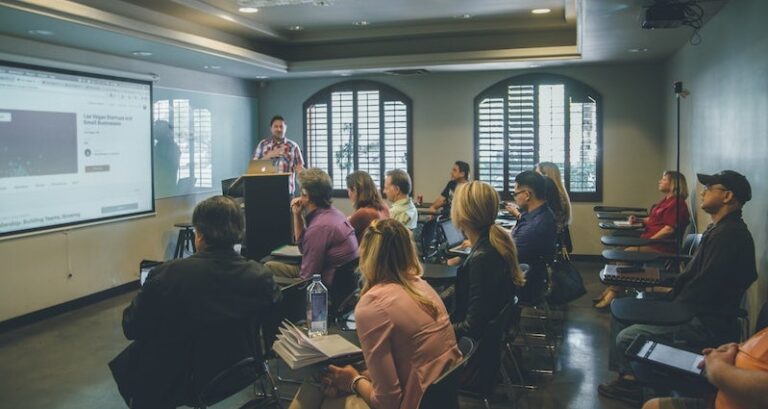The Senate Labor Committee, Chairman Fred H. Madden, and the Senate Education Committee, Chairwoman M. Teresa Ruiz, met jointly May 31 to hear testimony from invited speakers on the topics of teacher sexual misconduct, the reporting of child abuse in schools and the process for tenure charge arbitration in the case of teacher sexual misconduct.
Chiera: As the President of AFT New Jersey, representing 30,000 educators in our schools and colleges, we have a track record of working with many of you in the legislature to make sure that children are protected, the public is served and teachers are treated fairly. We understand the need to have serious conversations in venues like these where we have opportunities to mold policy and make legislation. At the same time, we want to give you all some background on Project Veritas, as their videos were what prompted this hearing.
AFT New Jersey understands our responsibility for children’s welfare. None of us would be in our profession if we didn’t. We believe in justice, equity and opportunity for children, knowing full well the road toward that includes fairness for those who teach. Fairness means just that, fairness. If students are harmed, corrective action must be taken to prevent the reoccurrence of any harm. If there are patterns of abuse or neglect, those need to be exposed and remediated. At the same time, we all understand the consequences of false accusations, which is why due process is so important.
If a child is abused, we do not run away and hide from dealing with the ramifications. There needs to be healing for the student and a thorough investigation to identify wrongdoing. I belong to a union that engaged well-respected arbitration expert Kenneth Feinberg to independently develop recommendations for expedited, but fair, investigations into any allegations up to and including abuse of students. You may recall that Mr. Feinberg also served as Special Master of the U.S. government’s September 11th Victim Compensation Fund.
This approach identifies objective criteria to trigger the process and protect children, while still ensuring the fairness and efficiency of due process. Our national executive board affirmed adopting these recommendations and we are proud to be educators who want to make sure the system works.
AFT New Jersey took what we learned from this process into our advocacy around changes to due process in the TEACHNJ act. Those changes were designed in part to speed up the process while ensuring its essential fairness was preserved.
As a result of that work, it takes less time to resolve cases, there are no incentives for delay, but teachers still have real due process. And sometimes that due process does indicate that a teacher has been improperly or unfairly charged. We believe that this part of the act in particular has served our state well. We have made the system more efficient, but we have also preserved fairness.
The state recently passed legislation with reporting requirements for educators accused of abusing students to stem the practice of district administration allowing teachers with unresolved charges to potentially move on to other schools without any notification. We think this is a good start and as an educational community we need to stay aware of any shortcomings in the system. In doing so, we need to listen to the voices from the classrooms, the counseling offices, the nurses, social workers and anyone who has contact with our students in devising the best polices to help keep them safe.
Our mission at AFTNJ clearly states that our priority is to “Promote the welfare of children.” The dedicated teachers I worked with for decades in Perth Amboy, and serve with in the union, always have that responsibility to our students as our first priority.
Through peer-led professional development and mentoring, our union seeks to help new teachers develop approaches to managing classroom behaviors, not by force, but in ways that channel even the most difficult behavior into productive expressions fostering a healthy classroom environment. Teachers typically work to develop and refine their skills over years and decades, always remaining open to research-based as well as classroom-tested ideas and concepts to bring to their students during the next period, day or academic year.
As a union President for more than two decades, I can tell you that no one has ever brought a hypothetical instance of abuse forward to me. When we are called into a situation, typically by district management, is when an accusation of abuse is leveled and an investigation begins. In instances where there are allegations of criminal conduct, the union lawyer would only counsel a union member about what their rights are and recommend they seek a criminal defense attorney.
Union leaders should know that we have no protected status for hearing criminal admissions. We have our duty to report through the appropriate channels if children have been victimized.
Here in New Jersey, if a teacher reports wrongdoing, I have to report it. That is the law. We have a system that works when regulations are followed:
• Children are protected,
• There is due process to protect educators from untrue accusations,
• Professionals who violate the system are held accountable.
Educators are trained to be observant to any signs of abuse or neglect visited upon our children. We worry about the home lives of some of them and sometimes face challenges in determining whether an intervention is warranted. We are trained to see the signs and take a course of action to protect our students. Teachers understand that it is state law that:
“any person having reasonable cause to believe that a child has been abused or neglected by a parent or caregiver is required to immediately notify DYFS”
Any discussions I have ever had on the subject were focused on protecting the children in question. At our individual schools, we review the signs of potential physical, sexual, or emotional abuse or neglect and work together to validate or alleviate one another’s concerns about our individual students.
We educators seek to uphold the professional standards of our occupation and have nothing to gain from protecting bad teachers, and particularly not from tolerating, excusing or covering-up abusive or predatory behavior from anyone interacting with our students. When children are hurt, we share that pain. When someone in authority actually caused the pain, the hurt intensifies for all of us.
Like most teachers, I entered the profession because I wanted to help children and saw the teachers’ role as one of a caretaker, a mentor, a trusted adult figure. I believe it is relevant to acknowledge that the impetus for these hearings comes from an operation conducted by Project Veritas, a discredited political group that doctors its videos to strip away context, enters schools during the school day under false pretenses and raises alarm about fake abuse stories. The group often refuses to allow the public to see the full conversations it records rather than its deceptively edited promotional videos. Project Veritas has faced multiple lawsuits against it for its unlawful misrepresentations, infiltrations, and splicing and dicing of unlawfully obtained material to distort it. Currently it is facing lawsuits in Michigan, DC, and Florida. This is also the group that recently attempted to feed a false sexual assault story about Senate candidate Roy Moore to the Washington Post. The Post exposed the scam and won a Pulitzer Prize for its work. Further, investigations spurred by Project Veritas, like one recently done by the Wisconsin Department of Justice, have demonstrated the illegitimacy of Project Veritas tactics and accusations.
Project Veritas does not engage in investigative journalism – this group created fake encounters to promulgate fake news about teachers and their representatives. I want to be clear – we must have high standards whether or not we face a real or fake encounter with educators, and however we come to learn of a union leader that does not follow our guidelines, we take swift action. Yet, we must also be cautious given the track record of trickery used by these undercover operatives that is often not detected for weeks or months, after damage is done. It is offensive, obnoxious and just plain wrong that politically-driven opportunists seek to portray our public schools teachers as abusive and our unions as enabling or sanctioning abuse.
Nevertheless, I am glad that we are having this important discussion and hope it can lead to better shared understanding of the responsibilities educators face. Within AFTNJ, we will be reviewing the reporting requirements with our locals and in our professional development to make sure that teachers are aware of what the law is and that teachers serving as union representatives do have the same legal requirements to report abuse to institutional DFYS.



